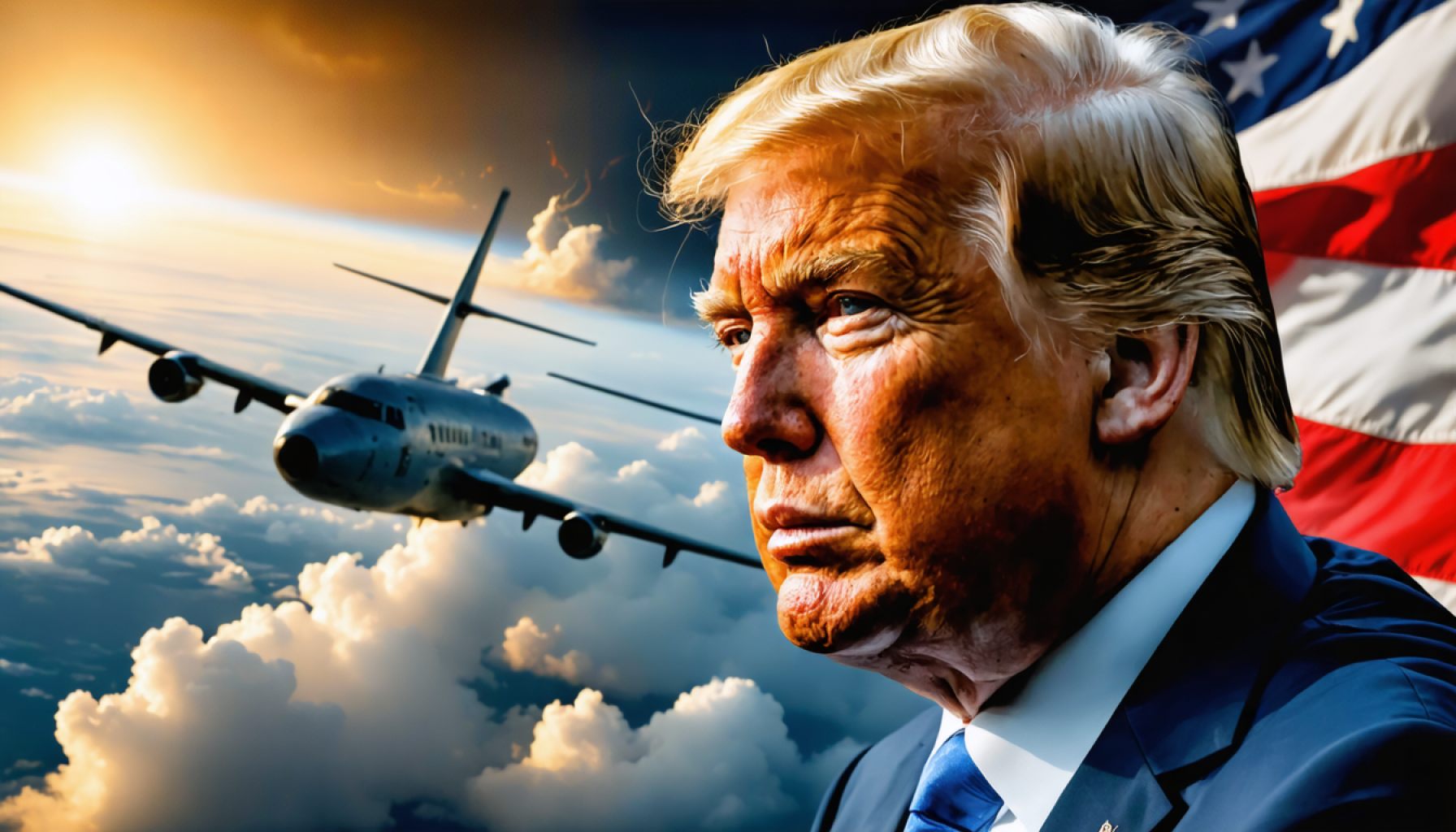- Donald Trump and JD Vance challenge traditional American political rhetoric, questioning extensive involvement in global affairs.
- They criticize U.S. interventionism, especially in Europe, urging a redefinition of America’s global role.
- Trump views Ukraine as the catalyst for war, while JD Vance sees Europe struggling with internal threats more severe than external ones.
- Both advocate for America to prioritize its own interests and reduce military commitments abroad.
- Their perspectives align with historical isolationist views, calling for nations to be self-reliant.
- The discourse invites reflection on U.S. foreign policy direction and whether to adhere to or break from past approaches.
The winds of American political rhetoric swirl sharply these days, and much of it centers around the maverick voices of Donald Trump and JD Vance. To many, their perspectives might seem as jarring as a sudden thunderstorm on a clear day. Trump speaks of Ukraine as if it ignited the flames of war, while dismissing President Zelenskyy as a tyrant. JD Vance casts Europe as a continent grappling with its internal threats more perilous than those posed by Russia or China.
So why should we listen? The idea, warned by John Stuart Mill, is that to understand one’s opponent is to gain wisdom, regardless of whether we concur. Trump and Vance may appear unyielding and obstinate, yet their discourse tears through decades of diplomatic language, critiquing what they see as overreaching American interventionism.
Their rallying cry? Redefine America’s global role. They question why the United States should endlessly funnel resources to a Europe that clings to illusions of external threats. Why support distant skirmishes that seem of little consequence to American soil? To them, the burden of defending a prosperous, free America does not rest on policing the globe.
This brew of isolationism is not novel but coated in stark candor. The ghosts of Presidents Wilson and Roosevelt linger, reminding us of past promises unkept as wars loomed despite pledges of non-intervention.
Yet the core of what Trump and Vance utter resonates with an American spirit weary of endless entanglements. Nations must fend for themselves, they argue, shedding the vestiges of Cold War theatrics. It’s a call for a recalibration of America’s expansive reach—strategically mistimed, perhaps, but insistent on change all the same. Will U.S. democracy echo their sentiments, or will the past dictate its path once more?
Why America’s Maverick Voices Might Hold the Key to Future Foreign Policy
Understanding the Current Landscape of American Political Rhetoric
Donald Trump and JD Vance have set the stage for a renewed debate on America’s global role, challenging traditional diplomatic norms. Their rhetoric is not just about stirring the pot; it’s a critique of longstanding policies that they argue have stretched American resources thin. With their focus on issues closer to the American heartland, they question the necessity of foreign interventions that appear disconnected from immediate national interests.
How-To Step: Evaluating Political Rhetoric
1. Identify Core Issues: Understand the specific policies being critiqued, such as foreign aid allocations to Europe and military interventions.
2. Analyze Historical Context: Consider past interventions and their outcomes to assess whether current policies need revision.
3. Evaluate Alternatives: Explore the potential benefits and drawbacks of a more isolationist stance.
4. Consider Broader Impacts: Look at how changes in foreign policy could affect global stability and U.S. diplomatic relations.
Real-World Use Cases and Implications
– Foreign Policy Redirection: Shifting away from international commitments may lead to increased self-sufficiency in global regions, but could also lessen U.S. influence abroad.
– Economic Recalibration: Cutting foreign expenditures might allow for increased domestic investment, but could simultaneously undercut international trade benefits.
– Military Strategy Adjustments: Reducing overseas military bases could lead to cost savings, but risks potential strategic disadvantages.
Reviews & Comparisons
– Isolationism vs Internationalism: Review historical outcomes of similar strategies. For example, pre-WWII isolationism eventually culminated in global conflict, but post-Cold War internationalism helped create global alliances.
Controversies & Limitations
– Isolationist Drawbacks: Critics argue that pulling back can embolden adversarial nations and destabilize currently peaceful regions.
– Public Opinion: While some citizens support a reduced global footprint, others highlight the long-term importance of international alliances.
Security & Sustainability
– National Security Considerations: A move towards isolationism demands robust internal security measures and might strain existing intelligence networks.
– Sustainable Foreign Policy: Balancing reduced intervention with strategic support to ensure global ethical standards are maintained.
Insights & Predictions
– Potential Shifts: As political winds change, the U.S. might redefine its alliances, focusing more on strategic partnerships rather than broad-based interventions.
– Long Term Outcomes: A successful recalibration could lead to innovations in international diplomacy, but failure might risk global unrest.
Pros & Cons Overview
Pros:
– Potential for reduced government spending.
– Greater focus on domestic issues.
– Less risk of entanglement in foreign conflicts.
Cons:
– Possible weakening of global influence.
– Increased regional instabilities.
– Risks to global economic interests.
Actionable Recommendations
1. Stay Informed: Track political debates to understand shifts in foreign policy.
2. Engage in Discussion: Participate in forums to discuss implications with others.
3. Lobby Leaders: Advocate for balanced foreign policies that consider both global roles and domestic needs.
Keywords: American political rhetoric, Trump, JD Vance, isolationism, foreign policy, U.S. interventionism, global role
For more insights on political dynamics and policy analysis, visit Brookings Institution.
